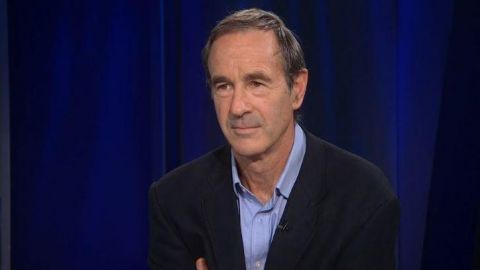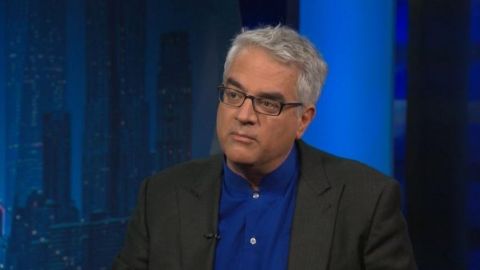Read Transcript EXPAND
CHRISTIANE AMANPOUR: Who is Boris Johnson? I mean, he is somebody who himself has said in answer to a question about, you know, what are his political convictions. Basically, he said, “Well, you know, a driving conviction,” but that was a long time ago. What does he stand for, Martin?
MARTIN FLETCHER, FORMER FOREIGN EDITOR, THE TIMES OF LONDON: Well, first of all, he’s a brilliant word smith and he’s funny. People like him. But he uses his gift with language to deceive, to dissemble, to dupe and to distract. At heart, first of all, he’s a newspaper columnist. He’s paid to provoke and to be colorful. And there are no consequences or very few consequences to what he writes. That doesn’t qualify you to be prime minister. I think he’s disqualified on two grounds. Firstly, his political record and secondly, his character.His political record consists of two years as foreign secretary, which were pretty wretched. I mean, by common consent, he was one of the worst foreign secretaries we’ve had. It was two years characterized by gaffes, by and gratuitous insults at a time when we should have been building ties and by (INAUDIBLE) about global Britain. Character wise, he is a congenital liar, he is a serial philander, he is untrustworthy, disloyal as his former wives and a succession of Tory leaders will tell you. He has — he is lazy, he thinks he can wing it, bluster his way through. This is not a man fit to occupy an office that was once occupied by Churchill and Thatcher.
AMANPOUR: So, not a Boris fan. And let’s just add for facts, he was fired from the “London Times” and he was fired from the “Telegraph,” I believe.
FLETCHER: No, he was fired for the “London Times” for making up a quote. He was then fired as art spokesman for lying about one of his several affairs.
AMANPOUR: OK. So, that’s the record there. I mean, look, Fraser, you occupy the position he used to occupy. I mean, Martin is kind of right.
NELSON: Well, Martin didn’t tell you the whole parts of the story. What Martin didn’t say was he was twice elected for mayor of London and Labour City. The largest personal democratic mandate in Europe. Nor did Martin say that against all odds he won, relieve (ph) referendum. He won more votes, 70.7 million than anybody has won for anything in the history of this country. So, yes, there is a side to Boris which (INAUDIBLE) focus on, but they always air brush out the incredible achievements he’s had, nobody comes to it. When you look at what David Cameron), what Tony Blair achieved before they become prime minister, it was as nothing compared to Boris’ record. Not just of electoral success but of administrative success. And London is a city of 10 million people, that is more than the lots of European countries. Now, sure, I’m not going to say that Boris is a saint, I’m not going to say that his personal life is beyond all reproach, but if you think that all he is is a philandering deceiving journalist, then you’re diluting yourself and not understanding why he is so popular.
About This Episode EXPAND
Christiane Amanpour speaks with Fraser Nelson and Martin Fletcher about the leadership race in the British Conservative party. Valerie Jarrett joins the program to discuss her new book, “Finding My Voice: My Journey to the West Wing.” Michel Martin speaks with Nicholas Christakis, author of “Blueprint,” who argues the historical arc of human behaviour bends towards goodness.
LEARN MORE


